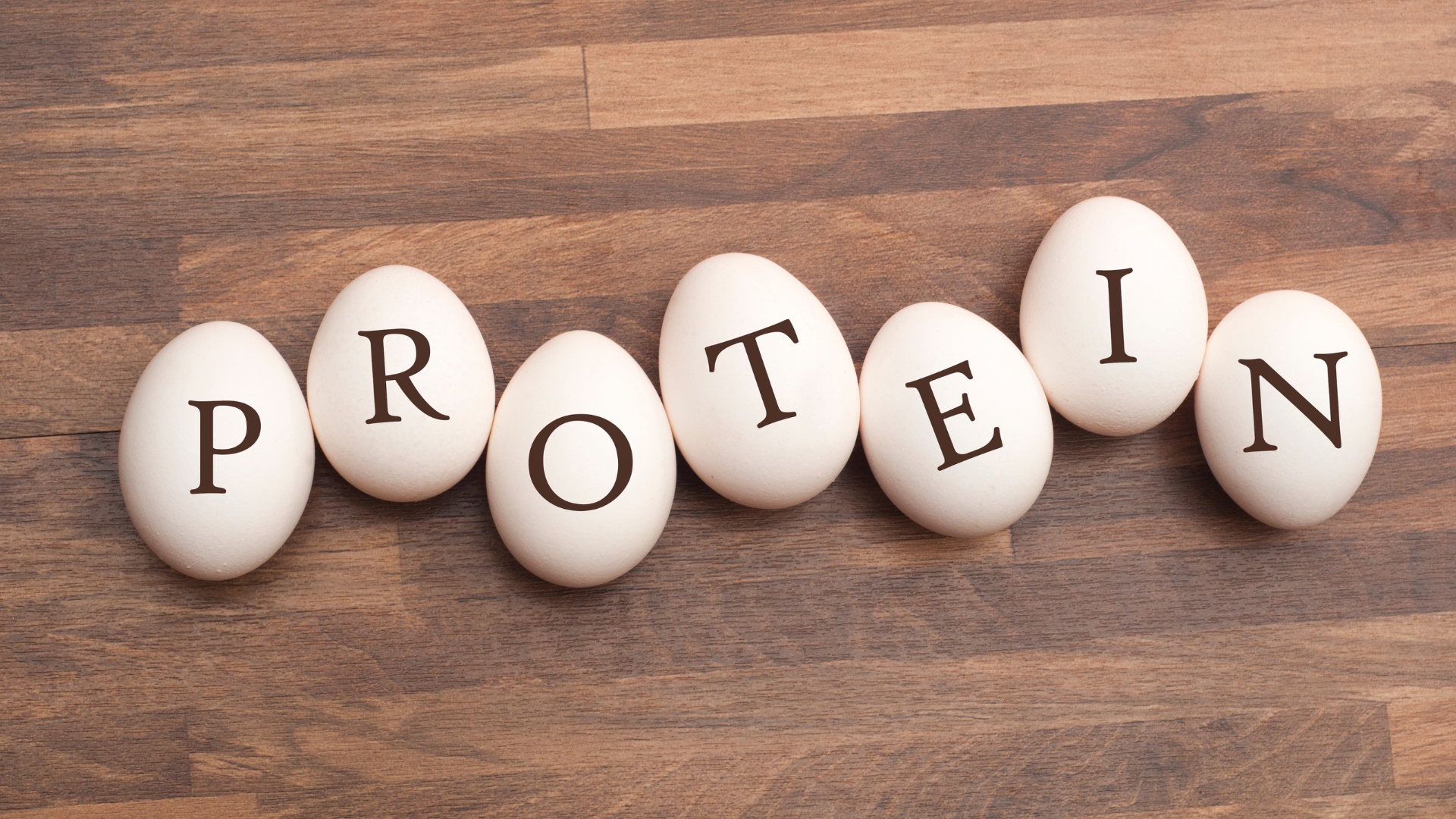Protein-First Eating: Why Everyone’s Prioritizing Protein Right Now
Protein-First Eating: Why Everyone’s Prioritizing Protein Right Now


Ever finish a meal only to feel hungry again an hour later? Or maybe no matter what you eat, you never quite feel satisfied? The missing piece might be simpler than you think—protein. Most people don’t realize how game-changing it can be to put protein at the center of every meal. Whether you’re trying to lose weight, build muscle, boost energy, or just feel more balanced throughout the day, starting with protein can make all the difference. In this post, we’re diving into the protein-first approach—what it is, why it works, how to do it, and some myths you can stop believing. Ready to finally feel full and fueled? Let’s get into it.
WHAT IS PROTEIN-FIRST EATING?
Protein-first eating is a powerful yet simple approach to nutrition that centers on prioritizing protein at every meal. Instead of focusing primarily on carbs or fats, this method encourages you to build your plate around high-quality protein sources like eggs, chicken, tofu, or Greek yogurt. This DOES NOT mean to go on a carnivore diet to where you are only eating protein. It’s more about creating a foundation of protein during your meals and surrounding it with healthy fats, veggies, and carbohydrates. By ensuring you meet your protein needs first, you naturally support muscle health, feel fuller for longer, and make more balanced food choices throughout the day. Whether your goal is to improve fitness, manage weight, or simply eat more mindfully, protein-first eating offers a practical and sustainable strategy to help you succeed.
Here are a list of benefits to why protein-first eating is important (We’ll elaborate more on these later!):
- Supports Satiety and Reduces Cravings
- Enhances Lean Muscle and Functional Strength
- Nourishes Long-Term Bone Health
- Tames Cravings and Makes Late-Night Snacking Less Tempting
- Lowers Blood Pressure
- Aids In Sustaining Weight Loss Over Time
- Supports Wellness Without Straining Healthy Kidneys
- Supports Tissue Repair and Recovery After Injury
WHY PROTEIN IS TAKING CENTER STAGE.
For years, nutrition crazes have swung between extremes. In the 1980’s and 1990’s, the low-fat craze dominated these decades, while in the early 2000’s and 2010’s, saw the emergence of low-carb, keto, and paleo diets. Each wave created a cultural obsession — either slandering fat or drastically cutting out carbohydrates — protein was often left to the side, underemphasized and seen as a secondary option.
Today, a new, fresh perspective is taking the center stage – one where old habits of obsessing over just one nutrient is being left behind. Rather than avoiding fats or eliminating carbohydrates, an increase of health experts are encouraging everyone to prioritize protein first, to which fats and carbohydrates be adjusted to individual’s needs, goals, and lifestyle.
So, why the shift?
- Sustainability: although ultra-low-fat or ultra-low-carb diets can lead to swift initial results, they are quite difficult to stay with and have been proven to be not the best solution for long-term success. These types of restrictive approaches can often lead to feelings of deprivation, social isolation with food, and burnouts to which can lead to weight cycling and metabolic damage.
- Muscle Preservation: protein intake is crucial to increasing and maintaining muscle mass. Factoring age, as we start to get older, especially around the age of 30, lean mass starts to decline naturally to which can then start leading to weakness, decreased mobility, and higher risks of falls or fractures. Protein intake is not just for aesthetics, it is a longevity strategy to keep our bodies healthy and promote physical function.
- Blood Sugar Control: protein offers a more sustainable solution in keeping blood sugar levels steady. Although low-carb diets aim to reduce blood sugar spikes, it misses the mark with long-term solutions. Protein can help slow down the digestion, prevent big spikes of glucose after eating meals, and helps you feel more energized for a longer period of time.
- Hormonal Health: protein plays a crucial role in supporting hormone production and balance. Key hormones such as insulin, growth hormone, and even neurotransmitters like serotonin and dopamine are made from amino acids, which are the building blocks of protein. With a lack of protein, your body struggles to produce and balance these important hormones.
Instead of focusing on what to avoid or restriction, the approach of prioritizing protein first emphasizes what your body truly needs and function at its best — like essential amino acids, satiety, tissue repair, and strength. This way of eating empowers a positive outlook on nourishment — rather than lifestyles based on guilt, fear, and deprivation. Protein is simply not just another add on or a supplement, but rather a foundation for sustainable, flexible, and health-forward way of eating.
BENEFITS OF PROTEIN FIRST EATING.
Let’s dive in to more of the benefits of protein first eating!
SUPPORTS SATIETY AND REDUCES CRAVINGS
Protein is a great source that can help reduce appetite and provide the feeling of satiety. Like previously mentioned, protein has a vital role in hormonal production and balance. These hormones are partly responsible in the effect of satiety.
In a review from 2020, it was found that protein helped reduce levels of ghrelin, which is a hormone produced in the stomach that stimulates hunger. Protein also boosts levels of cholecystokinin and glucagon-like peptide-1 (GLP-1), to which are two hormones that support digestion and feelings of fullness (Gunnars, 2025).
ENHANCES LEAN MASS AND FUNCTIONAL STRENGTH
Eating adequate amounts of protein can help maintain muscle mass and can help build muscle during strength training. In the case of weight loss, protein intake can prevent muscle loss as you are losing body fat. This makes it easier for your body to maintain the goal weight of your desire.
To increase lean mass, daily protein requirements vary per age group:
-
- Older than age 65 years: 1.2 to 1.59 g per kilogram of body weight (g/kg/bw)
- Younger than age 65 years: 1.6 g/kg/bw
NOUISHES LONG-TERM BONE HEALTH
There’s a myth that protein intake, mainly animal protein, is bad for your bones due to the idea that it increases the body’s acid load, to which supposedly causes calcium to be pulled from the bones to help neutralize the acid. Contrary to that belief, many studies have shown that protein — including animal protein — can actually support and strengthen bone health.
For example, a 2022 review involving 1,570 adults aged 68 to 75 found that higher protein intake significantly improved bone density — with animal protein offering greater benefits than plant-based sources (Gunnars, 2025).
Pairing this with resistance training or toning exercises can help maintain bone mass, lower risk of osteoporosis, and bone fractures. This can also be beneficial for women dealing with menopause or those who have an eating disorder (Gunnars, 2025).
TAMES CRAVINGS AND MAKES LATE-NIGHT SNACKING LESS TEMPTING
Cravings can often lead many people away from their goals. It’s not so much about being hungry, but wanting to satisfy what your brain is telling you what you need. In most cases, when we crave something, it’s usually “comfort foods”. Chips, chocolate, candy, and many other ultra-processed foods that provide us with that quick satisfaction due to a quick dopamine spike to which leads the brain to wanting more.
In a 2010 study, overweight men who increased their protein to 25% of their total calories needed saw a reduction to cravings by 60% and the desire to snack at night by half. In an other study done in 2014 with adolescent girls who were overweight, increasing protein during breakfast saw them reducing their cravings and late-night snacking (Gunnars, 2025).
LOWERS BLOOD PRESSURE
Research suggests that a higher protein intake paired with high fiber intake can help lower blood pressure. In a 2023 study, increased protein intake was linked to lower blood pressure and less risk of hypertension. Likewise, a 2010 review of 40 studies found that higher protein intake led to an average reduction of 1.76 mm Hg in systolic blood pressure and 1.15 mm Hg in diastolic pressure (Gunnars, 2025).
AIDS IN SUSTAINING WEIGHT LOSS OVER TIME
For weight loss to happen, you need to be in a calorie deficit. This means that you need to consume less calories compared to how much calories you burn/expend on a daily basis. Finding the right ration of deficit is key to a successful weight loss. As previously mentioned with the other examples, the role of protein while on a calorie deficit plan can help provide satiety, increase muscle mass, and boost metabolism to which all can lead to helping your body maintain weight loss.
SUPPORTS WELLNESS WITHOUT STRAINING HEALTHY KIDNEYS
Many believe that a higher protein diet can cause harm to your kidneys. This is not the case at all. Low protein diets are recommended for those who have certain health conditions. The National Kidney Foundation (NKF) states that a low-protein diet is only necessary for individuals with chronic kidney disease who are not undergoing dialysis (Gunnars, 2025).
For individuals with chronic kidney disease undergoing dialysis, the National Kidney Foundation recommends increasing protein intake to meet daily requirements. On the other hand, if you don’t have kidney disease, getting at least the recommended amount of protein is essential to support overall health and prevent potential deficiencies.
SUPPORTS TISSURE REPAIR AND RECOVERY AFTER INJURY
In a 2022 review, it highlights that protein plays an important role in cell growth, repair, and restoration. They serve as the building blocks for your tissues and organs (Gunnars, 2025). It is important to consume protein, especially if you are exercising. Consumption of protein can help muscles recover, repair, and grow to help build lean mass.
HOW TO EAT PROTEIN FIRST (Without Overthinking It)
Start with protein. This simple concept can make healthy eating not be stressful and obsessive. A simple shift in how you eat can make the biggest difference in seeing the results you want to see. Here’s how to eat protein first — without overthinking it.
1. Make Protein the Foundation of Your Plate
Build your meals with protein as the main focus and having carbohydrates and fats as it’s supporting role. Make it your foundation to which you can then build around it healthy fats, veggies, and complex carbohydrates for a balanced meal.
Examples:
-
-
Scrambled eggs with avocado toast
-
Chicken stir-fry over brown rice
-
Greek yogurt with berries and chia seeds
-
2. Keep Quick Protein Picks Within Reach
Quick and easy protein options makes eating easy as it takes the guesswork out of your meals. Stock your fridge, pantry, or your workspace with these protein staples:
-
-
Hard-boiled eggs
-
Cottage cheese or Greek yogurt
-
Canned tuna or salmon
-
Rotisserie chicken
-
Tempeh, tofu, or edamame
-
Protein powder for smoothies or protein bars
-
3. Turn Simple Snacks into Fuel with Protein
Snacks aren’t just fillers — when they include protein, they can help balance energy levels and curb cravings.
Try these smart swaps the next time you snack:
-
- Potato chips → try eating beef jerky or roasted chickpeas
- Chocolate bar → eat a protein bar that is fortified with vitamins and minerals (we recommend our Peak Wellness bars!)
- Crackers → try out protein chips! Protein chips can provide the salty and crunch that crackers provide
4. Aim for Balance, Not Perfection
Protein-first eating is not about counting the exact amount of grams or eliminating foods for your plan — it’s more about finding a healthy and sustainable habit that will lead you to progress and ultimately your goals. Making small shifts of adding a little bit more protein to your meals can a huge impact in how you feel.
5. Adapt It to Fit Your Lifestyle
To change your health and wellness, there is no one-size-fits-all approach. Whether you’re someone who is vegetarian, gluten-free, or have some other dietary restrictions — you can still incorporate the protein-first approach to your eating. Find the protein sources that you enjoy and create a routine and structure to ensure you’re setting yourself up for success for any goals you may have.
Plant-based ideas: lentils, tempeh, tofu, edamame, chickpeas, quinoa
Dairy-free ideas: eggs, meat, poultry, fish, pea protein, hemp seeds
CONCLUSION
Now, when we say to prioritize protein, this DOES NOT mean to eat as much protein as you can. It’s not about just eating protein for your meals and not eating any carbohydrates or fats. This approach of protein-first eating is a way to be more mindful of how and what you are eating. If you are on a weight loss plan and you are struggling to see results, chances are you might not be getting a good enough balance of your macronutrients, especially protein. Protein is essential to life and by prioritizing it with our meals, it provides us with benefits that helps push forward towards success. This simple shift requires minimum-effort, but provides you with a high-reward outcome.
We encourage you to try this out for a week. Journal down your energy, focus, and cravings to see how it affects you. And if it you don’t see any difference, that’s okay! Again, approaches are not a one-size-fits-all. Some may work for others, while some may not. It’s about finding what works for you and creating a consistency out of it. If you need a little help in finding what that is for you, reach out to us and we’ll be glad to assist you!
RESOURCES
Gunnars BSc, Kris. “Benefits of Protein: Function and Importance.” Healthline, Healthline Media, 18 Feb. 2025, www.healthline.com/nutrition/10-reasons-to-eat-more-protein#appetite-control.




